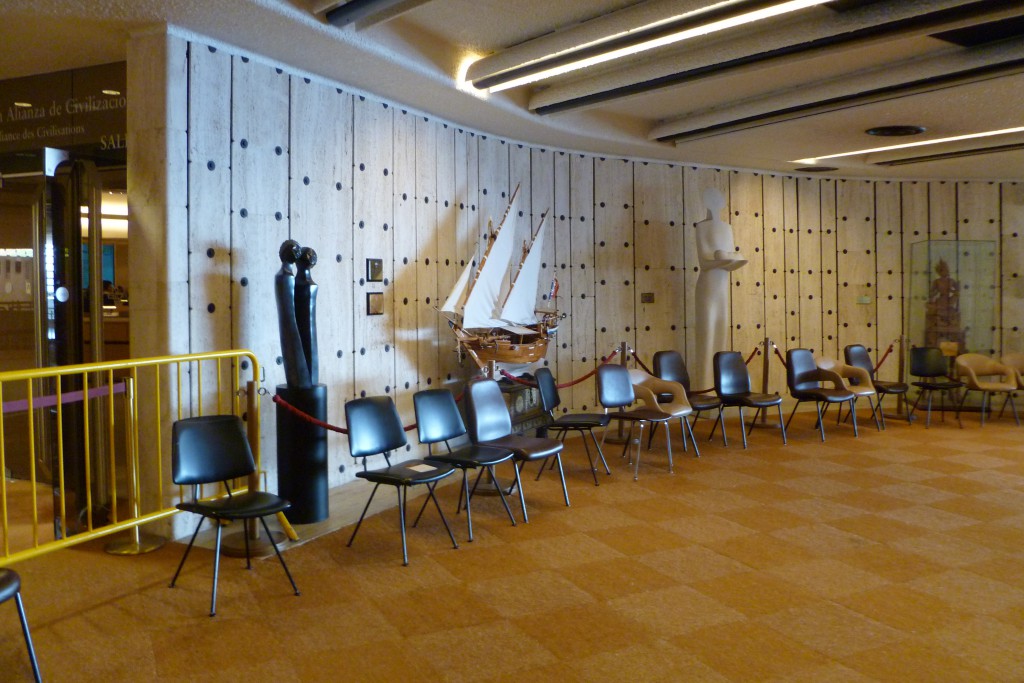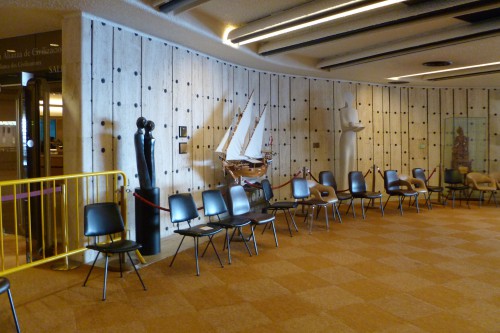7th June 2012 Geneva, Switzerland
Walking the UPR walk and mounting the pressure on Syria

The much awaited second round of the Universal Periodic Review finished its first session on Monday. There’s general agreement in these parts that the UPR has been a big success since it began 4 years ago, so the second round began with more excitement than you get at a diplomat’s house on Eurovision night.

Without fail, every country has turned up to face recommendations about how to improve its human rights record from its fellow UN members. The vast majority have taken the process seriously and the atmosphere has been pleasantly constructive. But the real test for the UPR begins now, when we start to see whether countries have managed to put any of the commitments they made four years ago into action.
There are some important changes for the second round but by far the most life-changing for those working on the UPR coal-face has been the way speaker’s lists are organised. For 4 long years my colleagues and I have been scrambling to get onto UPR speakers’ lists to make our 2 minute statements, spending many early hours waiting in line and even camping out in the UN car park in sub-zero temperatures with nothing but a portable fondue set and a cuckoo alarm clock to get through the night.
It’s hard to believe that it took so long to introduce a simple solution of dividing the time equally among all who want to speak. But the wheels of the UN machinery aren’t known for turning quickly.
This first UPR session has just looked at 14 countries. Bahrain was first up and many countries made tough statements, reflecting a growing sense of frustration in the international community about Bahrain’s lack of progress following last year’s protests. After a whistle stop tour of Ecuador, Finland, Indonesia, Morocco and Tunisia, the Council turned its gaze to the UK.
It’s hard to know how best to describe the process from the receiving end. It felt a bit like going for slightly unpleasant health treatment – a trip to the dentist or colonic irrigation. Given the option you’d not choose to do either, but you’re a whole lot better for it afterwards.
The UK delegation was led by Lord MacNally, the UK Minister of Justice with a long and distinguished career, who won plenty of admirers with his good humoured but sincere responses. Over 60 countries spoke to raise serious topics ranging from prison conditions, racism, the rights of children and women, and migrant workers. I was particularly impressed that Lord MacNally even managed bring up the weather, which will only reinforce British stereotypes.
He described how the government had responded to a recent drought by bringing in a hosepipe ban which prompted the heaviest seasonal rainfall for years. Perhaps if some patriotic countrymen had left their taps running in recent days, the Queen might have had a sunny jubilee.
The UK received well over a hundred recommendations to improve further its human rights situation. One of the more curious ones came from Germany who recommended that the UK recognise a new international human right to “safe drinking”. Was this a reaction to media reports about the UK’s alleged propensity for overindulgence or had Germany lost patience with the holiday behaviour of its more unruly European partners?
In fact Germany had wanted us to recognise the right to safe drinking water, but had fallen foul of the vigorously enforced limits on speaking time and been cut off before they’d been able to finish their statement.
Before the UPR session could complete its work the Council met in an emergency special session to look once more at Syria following the appalling massacre at El Houleh which had provoked particular outrage given the high proportion of children among the victims.
Turkey, Qatar and the United States were at the forefront this time round and the Council passed a strong resolution setting up an investigation into the massacre by the Council’s Commission of Inquiry. The resolution went through by the biggest margin so far on Syria with 41 states voting in favour, including India for the first time. Regrettably a united message of condemnation proved impossible with Russia, China and Cuba still opposed to Council action and stuck in support of Syria.
With the Council’s regular June session just a couple of weeks away let’s hope that the whole Council membership will soon be able to send a strong and unified Council message to Assad: Syria’s violations have to stop.